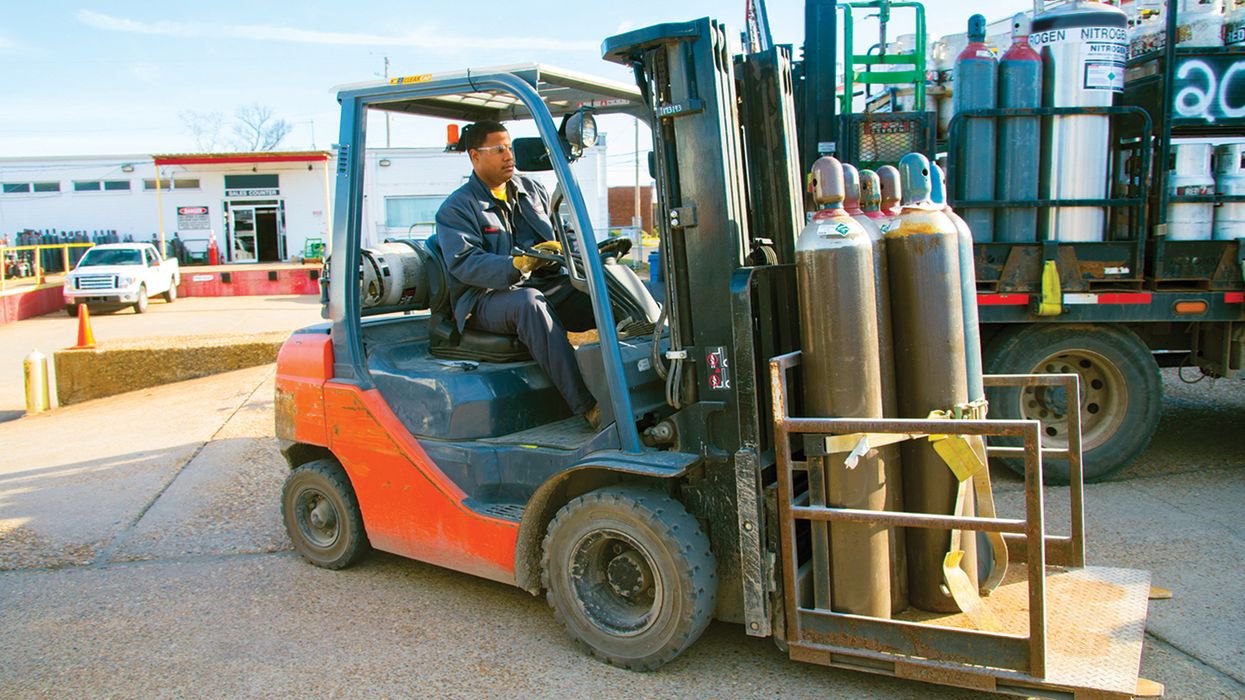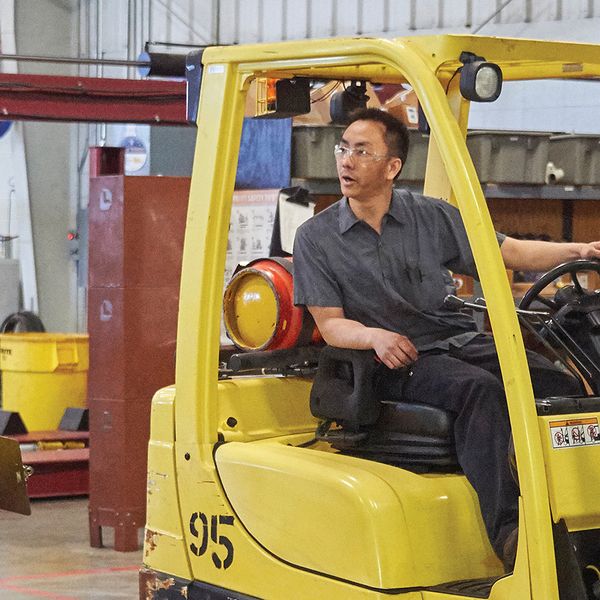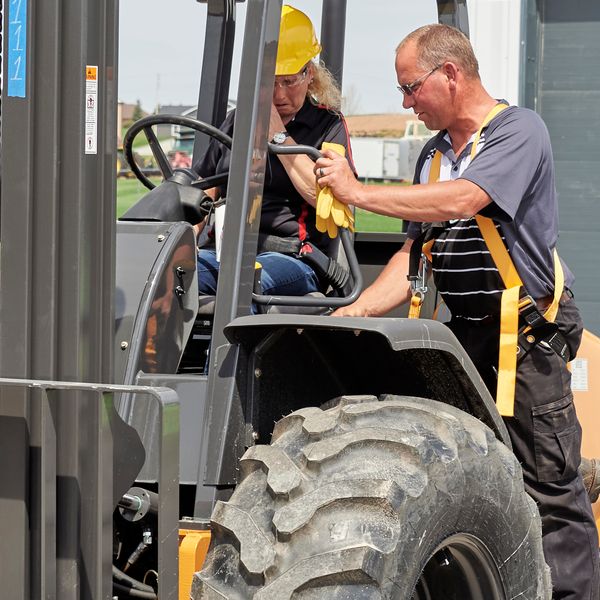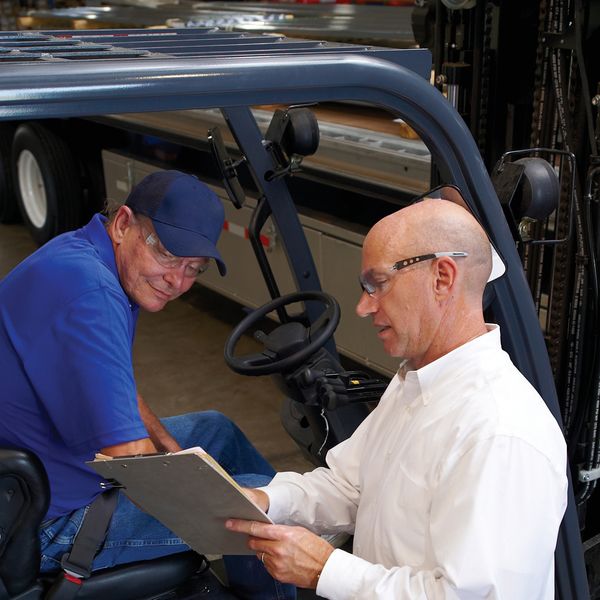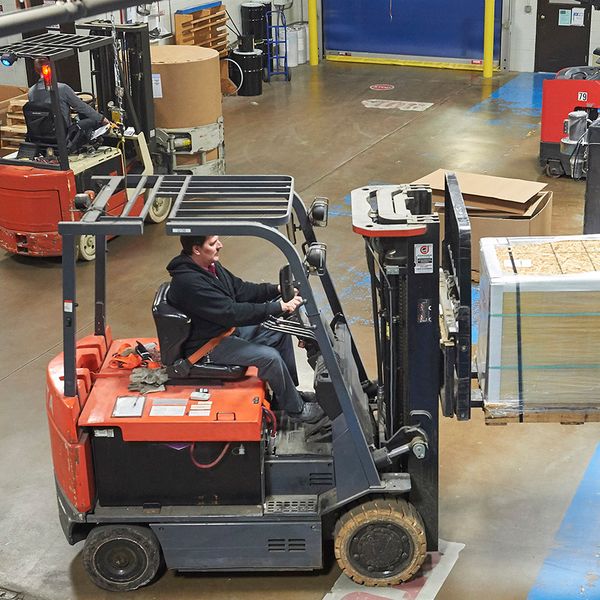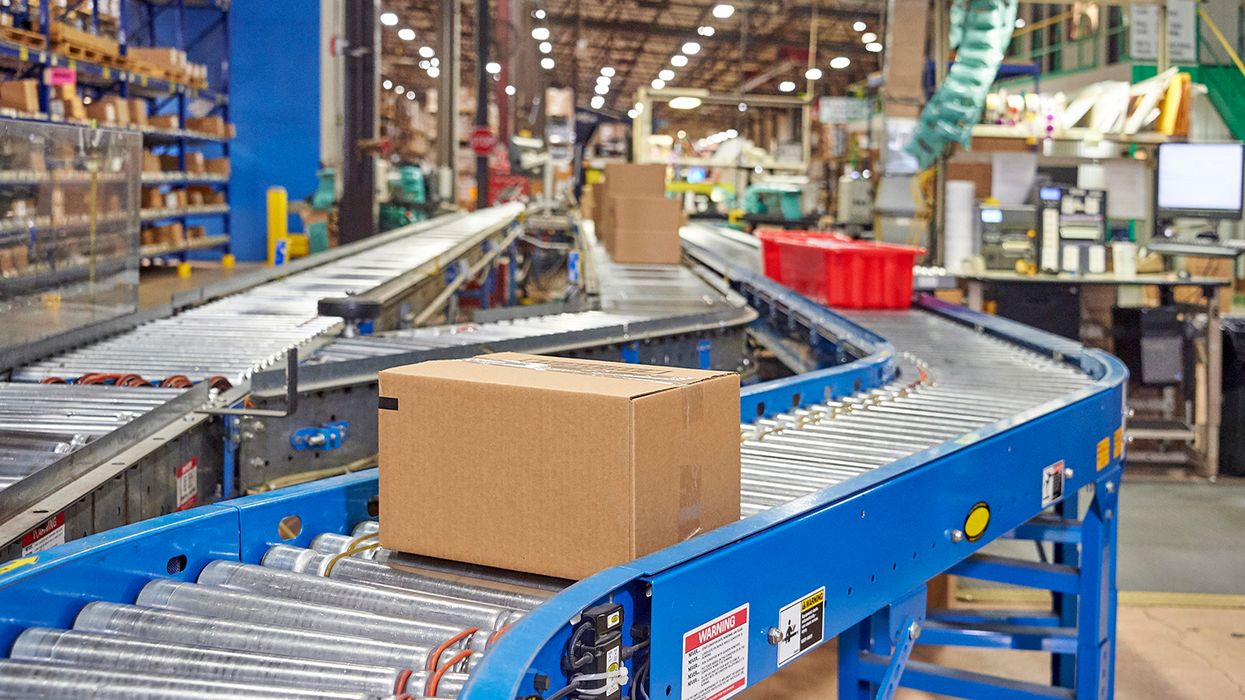Mastering the wheels: Is your powered industrial truck training comprehensive?
Powered Industrial Trucks (PITs) are incredibly heavy and have limited maneuverability, making it crucial to recognize that even seemingly minor accidents can have catastrophic consequences. We can’t overstate the significance of comprehensive PIT when it comes to ensuring a successful and smooth operation.
Operators who don’t follow safe practices, such as driving at high speeds, carrying unstable loads, or driving with distractions, are at risk of making fatal errors. The impact extends beyond the operators themselves, posing a significant threat to the safety of those nearby.
Forklifts and other PITs weigh several thousand pounds. Their weight combined with their reduced stopping ability, amplifies potential risks. Tragic incidents can include driving off loading docks, dropping loads, crashing into equipment or racks, or even striking another worker. Although these powerful machines simplify the movement and transportation of heavy loads and increase productivity, operating them requires specific skills and knowledge . This is where PIT training comes into play. Comprehensive PIT training is critical to control these risks and maintain a safe working environment for all.
| Want to learn more? See our ezExplanation on Powered Industrial Trucks. |
Elements of an effective training program
A comprehensive PIT training program includes several key elements to ensure its effectiveness. Training should include both theoretical and practical components. Classroom sessions provide operators with knowledge and understanding of forklift operation, safety procedures, and regulations. Practical, or hands-on, training allows operators to apply this knowledge in real-world scenarios, familiarizing themselves with the equipment and honing their skills.
Training should be tailored to the specific types of forklifts used within an organization. Different forklift models require different specific training, and operators should receive training specific to the equipment they will be operating.
Regular refresher courses reinforce knowledge and keep operators up to date with any changes in regulations, changes in the workplace and best practices. Ongoing training ensures that operators stay competent and confident in their abilities, reducing the risk of complacency and potential accidents.
Ensuring operator safety
The most vital aspect of PIT training is the emphasis on operator safety. Operating a forklift without proper training can lead to severe accidents, injuries, or even fatalities. By actively participating in training, operators gain a comprehensive understanding of the equipment and controls, its limitations, and the necessary safety precautions to follow. They learn how to inspect the forklift, effectively manage loads, and navigate various work environments.
Understanding the equipment
PIT training gives operators an in-depth understanding of the equipment they are handling. They learn about the diverse types of forklifts, their unique components, and how vehicle functions. From understanding the weight capacities and load stability to using the controls, operators learn the necessary skills to handle the machinery effectively and safely. This knowledge helps prevent accidents related to equipment misuse or failure.
Reducing risk
Effective training programs for PITs also focus on identifying and correcting potential risks. Operators should learn how to recognize hazardous situations, such as uneven surfaces, narrow aisles, challenging areas for operation, or overhead obstacles. They should also be trained in safe maneuvering techniques, including backing up, turning, and operating on ramps or dockboards. By understanding and addressing potential risks before they become accidents, operators can minimize mistakes, protect themselves and others, and prevent damage to the facility, equipment, and inventory.
Promoting workplace efficiency
While safety is the primary focus of PIT training, the benefits extend beyond just accident prevention. Well-trained operators have the skills necessary to work efficiently. They become skilled in loading and unloading materials and maximizing storage in busy work environments. This leads to smoother operations, reduced product damage, and increased productivity. A trained workforce helps businesses stay competitive in today’s fast-paced industrial environment.
Key to remember
PIT training is an essential investment for any organization using forklifts. By focusing training on operator safety, understanding the equipment, mitigating risks, and promoting workplace efficiency, businesses can drive toward a safer and more productive work environment with confidence and peace of mind. A commitment to ongoing PIT training is essential to ensure the continued well-being of operators and the success of the organization as a whole. By mastering the wheels through proper training, businesses can drive towards success with confidence and peace of mind.

